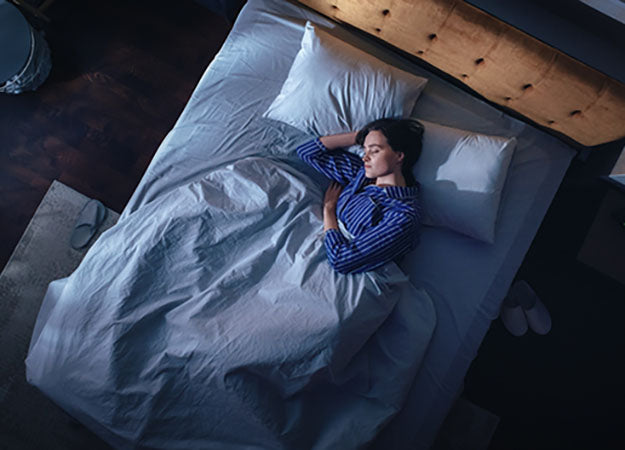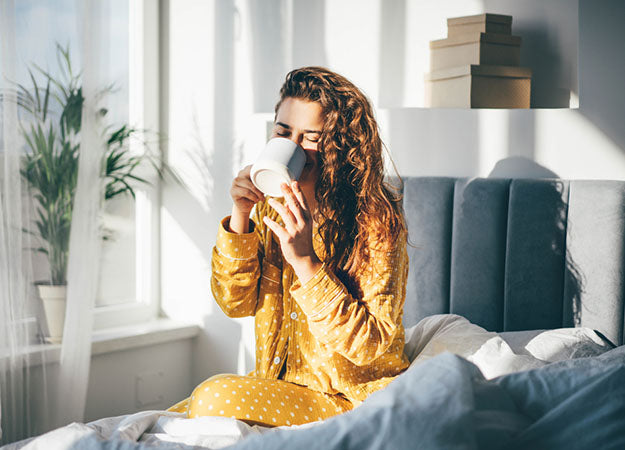
Gorodenkoff/Shutterstock
Men and women have differences, but does it matter when it comes to sleep? While both require quality sleep for overall health and well-being, research suggests females may need to catch more Zs than their male counterparts. Let’s dive into the reasons why this may be the case.
Why Women May Need More Sleep Than Men
There are several reasons why women may need more sleep than men. Let’s take a look at some key factors that might influence a woman’s need to sleep longer.
Find the Best Mattress for Better SleepHormones
Hormones are the body’s chemical messengers that help regulate numerous physiological processes, including sleep. For women, fluctuations in hormone levels throughout different life stages — such as menstruation, pregnancy and menopause — can significantly affect the quantity and quality of sleep:
Menstruation: During menstruation, fluctuations in estrogen and progesterone can affect how well a woman sleeps. Research highlighted on PubMed reveals that a third of menstruating women experience sleep disturbances due to symptoms such as cramps, headaches and bloating. These disruptions lead to increased daytime sleepiness and fatigue.
Pregnancy: Pregnancy brings its own set of hormonal changes that can influence sleep. Johns Hopkins Medicine notes that the surge in progesterone during the first trimester can make women unusually drowsy. In the later stages, increased estrogen levels can cause rhinitis, leading to snoring and potentially sleep apnea, making restful sleep more elusive. Additionally, some pregnant women may encounter restless leg syndrome, which is an uncontrollable urge to move their legs while resting that can further hinder their ability to sleep well.
Menopause: The transition into menopause is another period of significant hormonal changes. Decreasing levels of estrogen and progesterone can lead to sleep disturbances, including difficulties falling asleep, staying asleep and the occurrence of hot flashes that can interrupt sleep. In fact, according to the Merck Manual, 75% to 85% of menopausal women experience hot flashes. Additionally, The Journal of the Menopause Society notes that lower estrogen levels have been linked to an increased risk of sleep apnea, a condition that can significantly degrade sleep quality.
Stress and Anxiety
Stress and anxiety are significant sleep disruptors, and research indicates that women are more likely to experience both. Specifically, the American Psychological Association’s 2023 Stress in America survey found that women reported higher levels of stress on average compared to men, with scores of 5.3 out of 10 for women and 4.8 for men. Moreover, a greater proportion of women, about 27%, report their stress levels in the higher bracket of 8 to 10, compared to 21% of men, underscoring the heightened stress experience among women.
Caregiving responsibilities can be another source of stress and anxiety. A study published in the British Journal of Sociology suggests that women disproportionately bear the brunt of nighttime caregiving compared to men. This duty frequently requires them to interrupt their sleep to attend to others in the home, such as children or elderly family members. This dynamic not only disrupts their sleep cycle but also adds a layer of stress and anxiety, contributing to a cumulative effect on their mental and physical health.
The Brain
The need for more sleep in women compared to men is often linked to the complex nature of the female brain. Professor Jim Horne, former director of the Sleep Research Center at Loughborough University, published a journal ”Sleepfaring: A Journey Through The Science Of Sleep” that suggests the nuanced differences in how women’s brains operate — juggling multiple tasks and maintaining flexibility — require slightly more sleep compared to men. This perspective aligns with the broader understanding that sleep is crucial for brain health, providing a period for the brain to rejuvenate and prepare for another day’s demands.
“Women tend to multi-task — they do lots at once and are flexible — and so they use more of their actual brain than men do. Women’s brains are wired differently . . . so their sleep needs will be slightly greater,” Horne said.

Ground Picture/Shutterstock
How to Get Better Sleep
Regardless of gender, quality sleep is a cornerstone of good health and well-being. If you have trouble sleeping or feel like your sleep quality can improve, consider these tips:
Make Your Bedroom a Sleep Oasis
Your bedroom should be a sanctuary for sleep. Keep it cool, dark and quiet. Invest in a good quality mattress like a Tempur-Pedic mattress, and consider adjustable beds to support your body comfortably. Additionally, choosing the best bedroom colors for sleep, such as soothing blues, greens or earth tones, can further create a calming atmosphere conducive to rest.
Manage Stress
Managing stress is key to unwinding before bedtime. Consider practices like journaling to offload your worries, meditation to calm your mind or gentle yoga stretches to relax your body. Techniques like deep breathing can also be particularly effective in preparing you for sleep.
Limit Screen Time
The blue light emitted by phones, tablets and computers can interfere with your natural sleep cycle. Try to avoid these screens at least an hour before bedtime. Instead, engage in relaxing activities that don’t involve screens to help signal to your body that it’s time to wind down.
Pay Attention to What You Eat and Drink
Be mindful of your intake of caffeine and alcohol, especially in the hours before bedtime, as they can disrupt your sleep. Also, avoid heavy or large meals late in the evening. If you’re hungry at night, opt for a light snack that won’t disturb your sleep.
Keep Active During the Day
Regular physical activity can help you fall asleep faster and deepen your sleep. Just make sure not to exercise too close to bedtime, as it might leave you too energized to fall asleep.
Establish a Pre-sleep Routine
A consistent bedtime routine helps signal to your brain that it’s time to relax and let go of the day’s stresses. This routine might include reading, taking a warm bath or gentle stretches. Consistency is key, so try to stick to the same activities in the same order each night.

Mariia Korneeva/Shutterstock
Wrapping Up
While there are various reasons why women may require more sleep than men, it’s clear that prioritizing quality sleep is essential for everyone’s health and well-being. At City Mattress, we understand the critical role sleep plays in your overall health and vitality, and we’re committed to helping you find the perfect sleep solution tailored to your individual needs.
